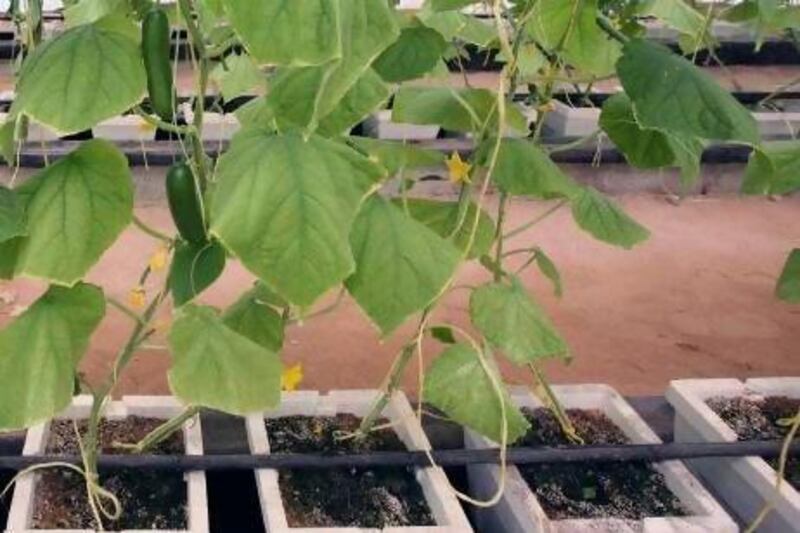DOHA // GCC countries are trying to be more realistic about what they grow, with Saudi Arabia planning to give up growing wheat in 2015 and Qatar looking to hydroponics.
But with falling water tables and some of the highest levels of water use in the world, the GCC is struggling to make ends meet when it comes to food.
Hard lessons and new ideas were on the table last month in Doha at the 10th Gulf Water Conference - but years will be needed to find the ones that work best.
But the clock is ticking with the region's population forecast to reach 50 million by next year.
And with the Gulf's dependency on imported food, price volatility is another serious concern.
"The volatility of food prices is off the charts and this is a concern for stability and long-term planning," said Fahad Al Attiya, the chairman of the Qatar National Food Security Programme .
That means Gulf nations need to make their local agriculture more sustainable. To do that, some delegates said, they need to invest in desalination technology.
"The precipitation rate here is 74mm a year compared to Brazil where it's 1,500mm," Mr Al Attiya said.
"So it's a priority for all GCC states to think of desalination technologies as paramount."
Wasteful use of water in agriculture is also something that needs to be addressed, he said.
"The problem with the GCC is the lack of a detailed regulation on the method of production in agriculture the last 30 years," Mr Al Attiya said. "Half a trillion cubic metres of water were lost because of this."
One answer is to grow crops with only water, not soil. In Abu Dhabi, farmers are being advised to shift to hydroponics as a way to save water.
Others believed GCC countries should join forces on research and technology, to make their agriculture as water-efficient as possible.
"People say we need to invest in desalination but I don't agree," said Waleed Al Zubari, a professor in water resources management at Bahrain's Arabian Gulf University.
"What we need is investment in research and development and it is crucial to reduce the cost of desalination ... we're under the severe line of water and we need to be innovative, we can't rely on the same techniques."






